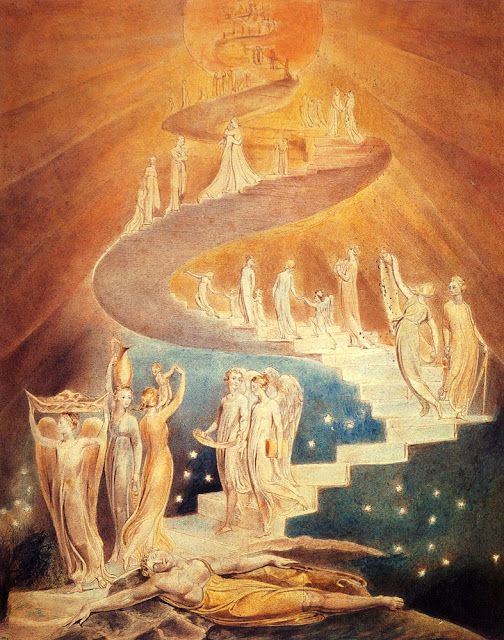Shabbat Gathering: Shalom Aleichem: Welcoming Our Angels

Dear Chevra, as is our custom, we will gather tonight at 5.45p to welcome Shabbat. Here are the coordinates:
Zoom
Meeting ID: 963 5113 1550
Password: 1989
Phone: +1 312 626 6799
(To unsubscribe from the newsletter, click the link at the very bottom of this email.)
Here we go.
This is our legend:
Fathers attend synagogue on Friday nights. It’s a brief service. During the walk home, they sing Shalom Aleichem and welcome Shabbos and the Shabbos angels. And this is what they sang then, and this is what we will sing tonight:
Peace unto you, ministering angels, messengers of the most high, of the supreme ruler of rulers, the Holy One of blessing.
May your coming be in peace angels of peace, messengers of the most high, of the supreme ruler of rulers, the Holy One of blessing.
Bless me with peace, angels of peace, messengers of the most high, of the supreme ruler of rulers, the Holy One of blessing.
May your departure be in peace, angels of peace, messengers of the most high, of the supreme ruler of rulers, the Holy One of blessing.
Just like other elements in our Shabbat Gathering service (Lecha Dodi, for example), Shalom Aleichem was written by the Kabbalists of Safed in the 16th or 17th centuries. The melody most familiar to us was composed by Rabbi Israel Goldfarb on May 10, 1918 while sitting on the steps of Columbia University’s library. Debbie Friedman composed a new melody right before she died and believed it would be her legacy, which is saying something coming from the person who composed our Mi Shebeirach. Here's how her version goes:
So Shalom Aleichem is steeped in Kabbalah. The notion is that we have two pairs of angels that watch over us. First, there are our every day angels who ascend back to heaven on Friday nights. Then, there are the special Shabbat angels that escort our extra soul, the Neshama Yetera, down from heaven and into our hearts where it will stay until Saturday night when the Shabbat angels escort it back to heaven and our everyday angels descend back to us.

During Shabbat, we experience a much closer connection with the Divine. And then it’s gone again. Why? Why didn’t Hashem give us a permanent connection? One answer possibly is that perhaps the lesson is about letting go. Rabbi Dovid Tsap, author of The Orchard: Adventures in Kabbalah, proposes that this lesson in letting go is essential to our well being. Rabbi Tsap says that attachment to the transitory is the biggest cause of our unhappiness. He writes, “Be it a possession, a friend, or a state of being, on account of our tenacious grip on these things, we feel resentment, excessive grief, and even depression in having to part with them.” The key, Rabbi Tsap says, is to understand that everything we have is on loan from Hashem. Nothing is our own. And when we perform a mitzvah, we are returning to Hashem something Hashem has given us.
I don’t know about you, but I have trouble celebrating my losses. I’ve studied — a very little bit — about Buddhism and am familiar with the notions of attachment and non-attachment, but I will confess to you that I still mourn for some of the things I’ve lost along my way. Some of my attachments are hard to release: family, lovers, shuls, career, … things very dear to me. It’s hard to say goodbye to the Shabbat angels, but I’m confident that, come around next Shabbat, I know that if I perform the mitzvot, I will receive that sweet blessing again. And for me, maybe that's enough.
And may it be for all of us a blessing. See you tonight!
All my love,
brian.